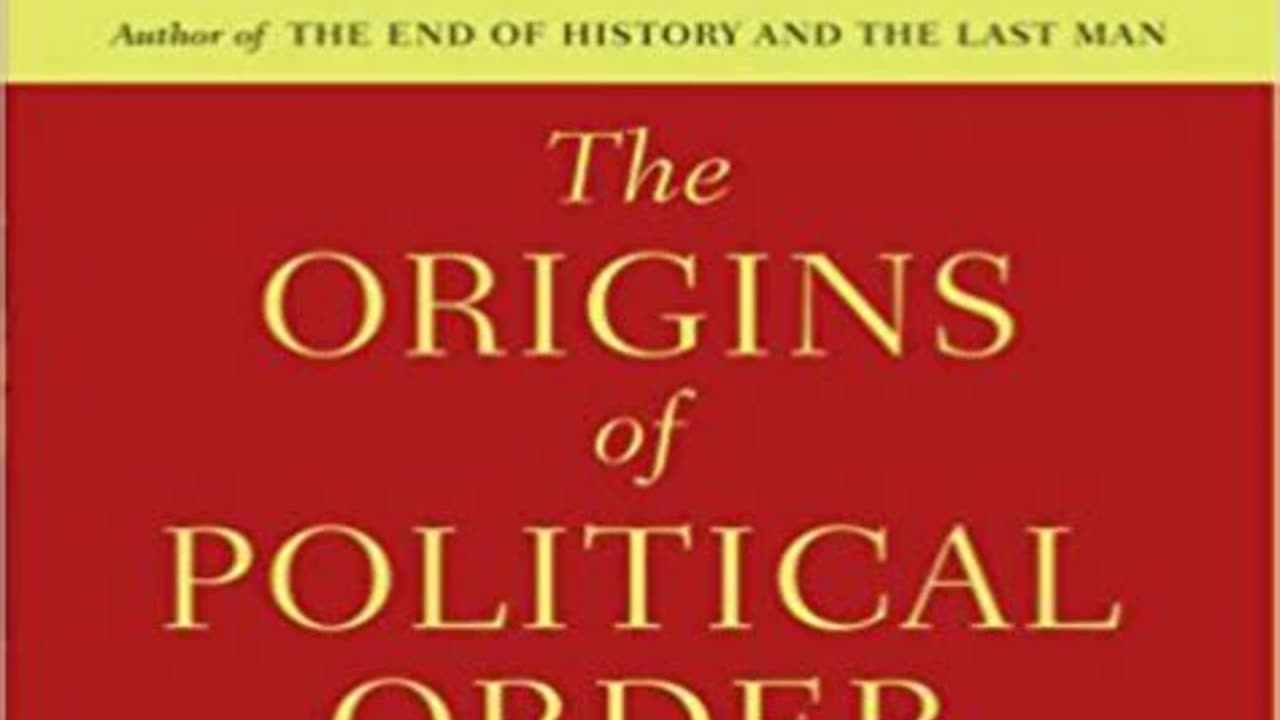Premium Only Content

The Origins of Political Order by Francis Fukuyama | Summary
Buy Here: https://amzn.to/3GOAkRF
""The Origins of Political Order: From Prehuman Times to the French Revolution"" by Francis Fukuyama is a comprehensive examination of the evolution of political institutions from the earliest human societies to the dawn of the modern era. Fukuyama explores the development of political order by analyzing key factors such as the state, rule of law, and accountability.
The book begins by delving into the prehuman origins of human sociality and the emergence of political order in small, kin-based groups. It progresses through the evolution of political institutions in various cultures, including ancient China, India, and the Middle East, shedding light on the distinct paths each region took in developing political structures.
Fukuyama emphasizes the significance of the state as a central institution for establishing and maintaining political order. He examines the role of strong and effective states in promoting stability, economic development, and social cohesion. The author also explores the relationship between political and social institutions, addressing how they interact and influence one another.
The concept of the rule of law is a central theme, and Fukuyama traces its historical development. He discusses the importance of legal frameworks in constraining the power of rulers and providing a foundation for stable governance. The book also covers the challenges posed by patrimonialism, clientelism, and corruption to the establishment of effective political order.
Fukuyama's analysis extends to the medieval period and the early modern era, exploring the development of political institutions in Europe that laid the groundwork for the modern state. The book concludes with the French Revolution, marking a pivotal moment in the transformation of political order.
Overall, ""The Origins of Political Order"" offers a compelling narrative that synthesizes historical, political, and sociological perspectives to provide a nuanced understanding of the factors that have shaped political institutions throughout human history. The work contributes to ongoing discussions about the origins and nature of political order, making it a valuable resource for students, scholars, and anyone interested in the evolution of governance."
-
 1:24:00
1:24:00
Man in America
17 hours agoMarket Crash, Tariffs, USD Collapse: Trump's Plan to END the Old World Order? w/ John Perez
83.3K77 -
 8:07
8:07
Colion Noir
13 hours agoShould You Carry Non-Lethal Weapons For Self Defense?
64K54 -
 14:53
14:53
Forrest Galante
8 hours agoAustralia's Top 5 Deadliest Animals
51.3K12 -
 3:18:47
3:18:47
DLDAfterDark
8 hours ago $5.40 earnedDLD Live! What's The "best" PDW?? Considerations For Trunk/Truck Gun & Gats in Bags & Backpacks
33K7 -
 15:25
15:25
Exploring With Nug
19 hours ago $22.53 earnedBag of Phones Found While Searching For Missing Man In River!
89.3K27 -
 3:58:27
3:58:27
fuzzypickles168
8 hours agoLate Nite Jam Session - Rock Band 4 | Was: EA Sports WRC | 1 John 2:1-17
31.4K -
![Nintendo Switch It UP Saturdays with The Fellas: LIVE - Episode #13 [Mario Kart 8 Deluxe]](https://1a-1791.com/video/fww1/97/s8/1/1/g/A/z/1gAzy.0kob-small-Nintendo-Switch-It-UP-Satur.jpg) 3:33:38
3:33:38
MoFio23!
18 hours agoNintendo Switch It UP Saturdays with The Fellas: LIVE - Episode #13 [Mario Kart 8 Deluxe]
58.8K2 -
 23:24
23:24
MYLUNCHBREAK CHANNEL PAGE
19 hours agoDams Destroyed Turkey
105K94 -
 7:24:43
7:24:43
SpartanTheDogg
11 hours agoPro Halo Player
60.8K1 -
 11:29
11:29
Tundra Tactical
11 hours ago $3.75 earnedGEN Z Brit 3D Prints a WORKING Gun Pt.3!
60.1K4